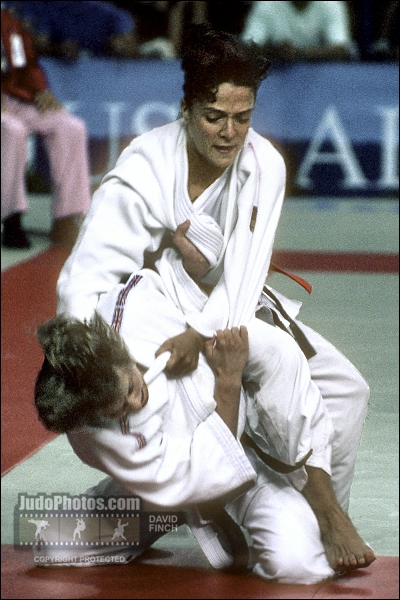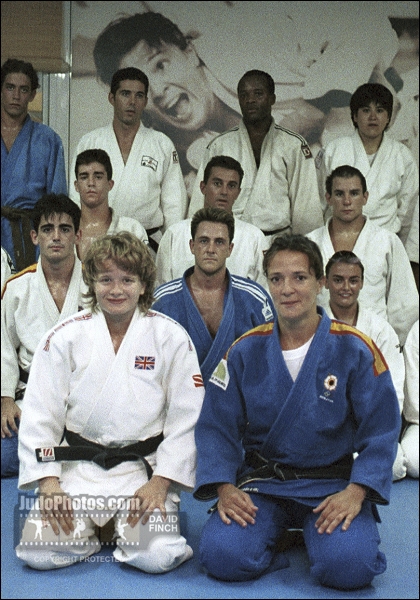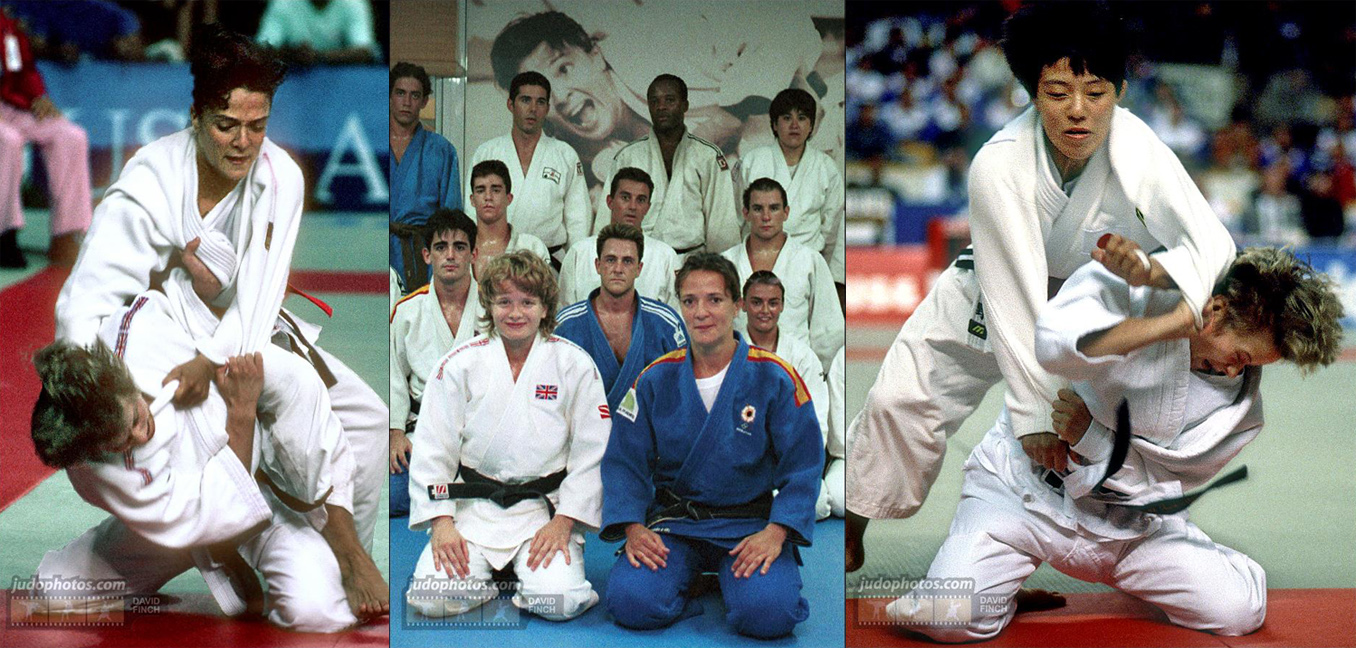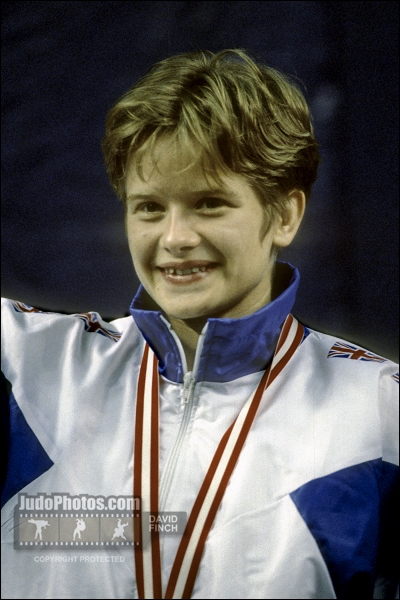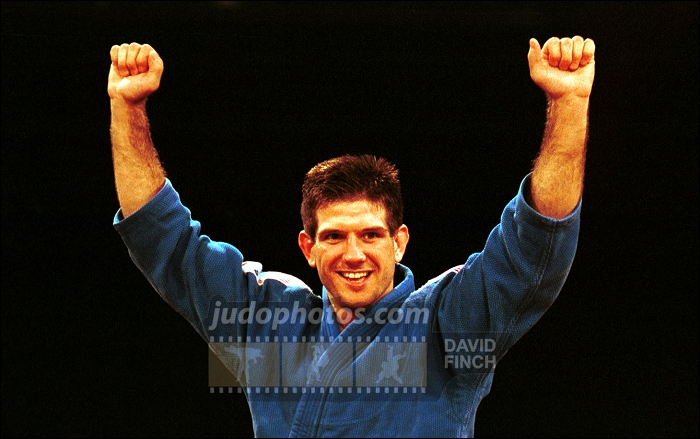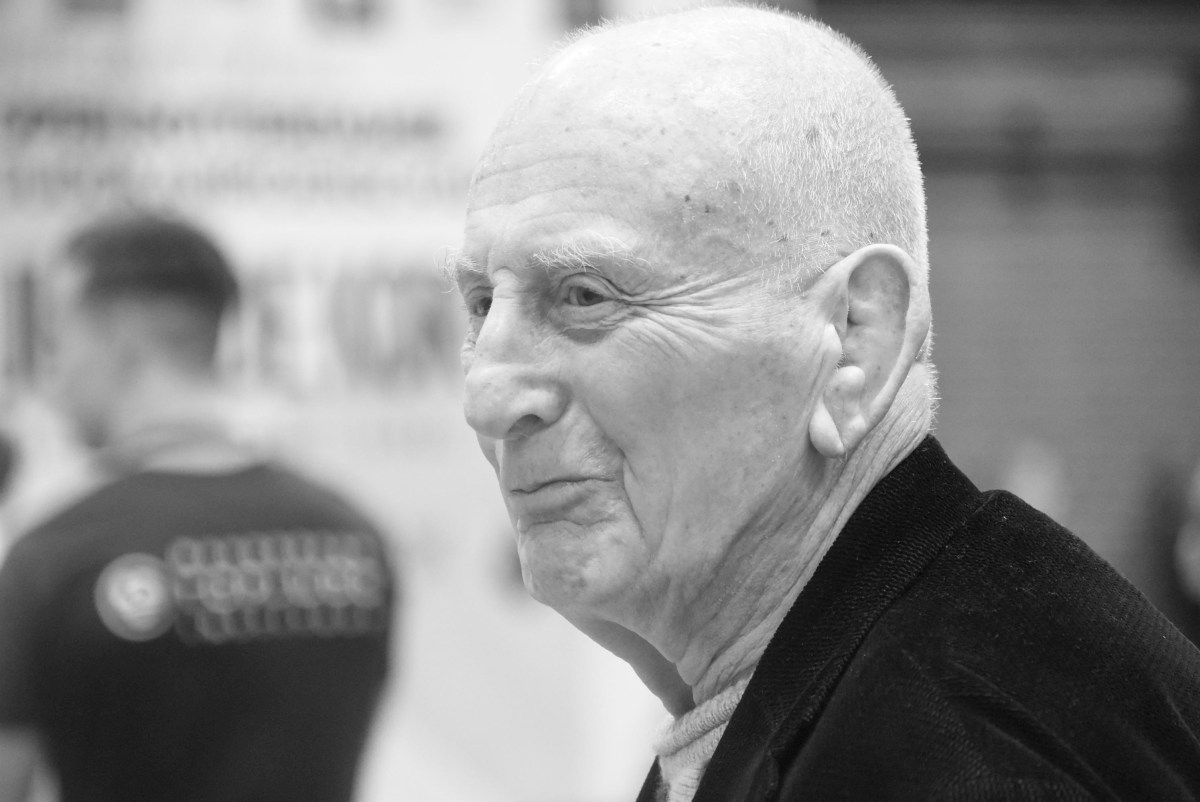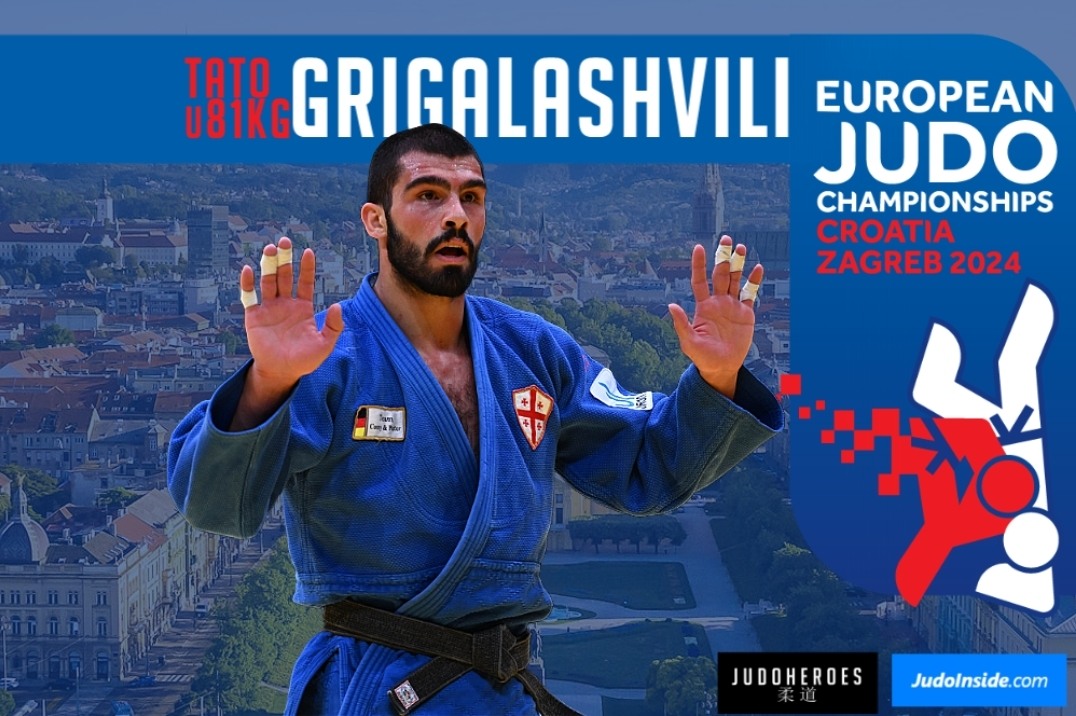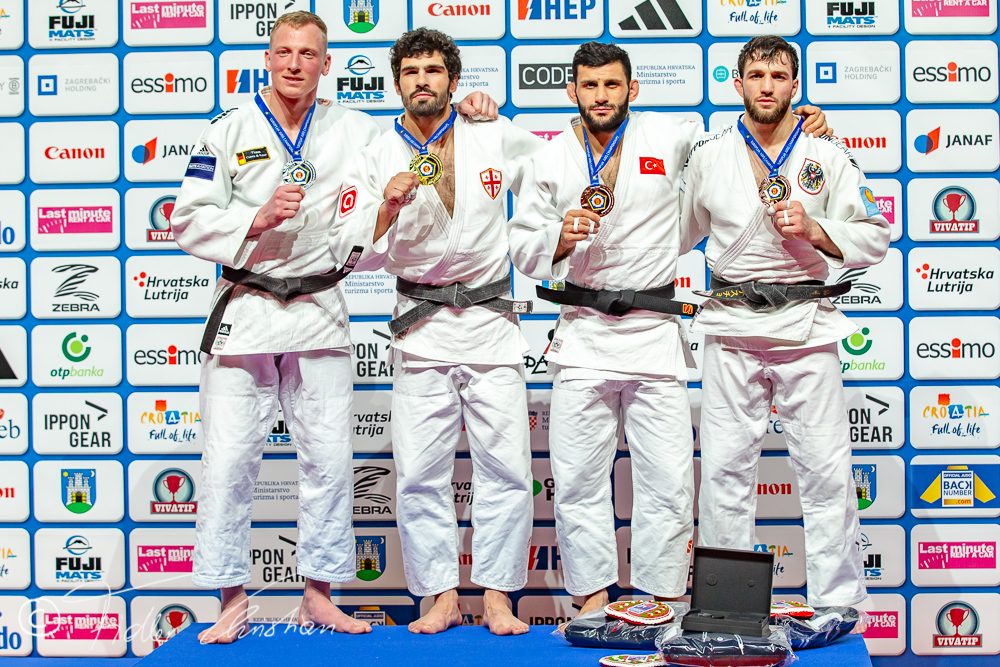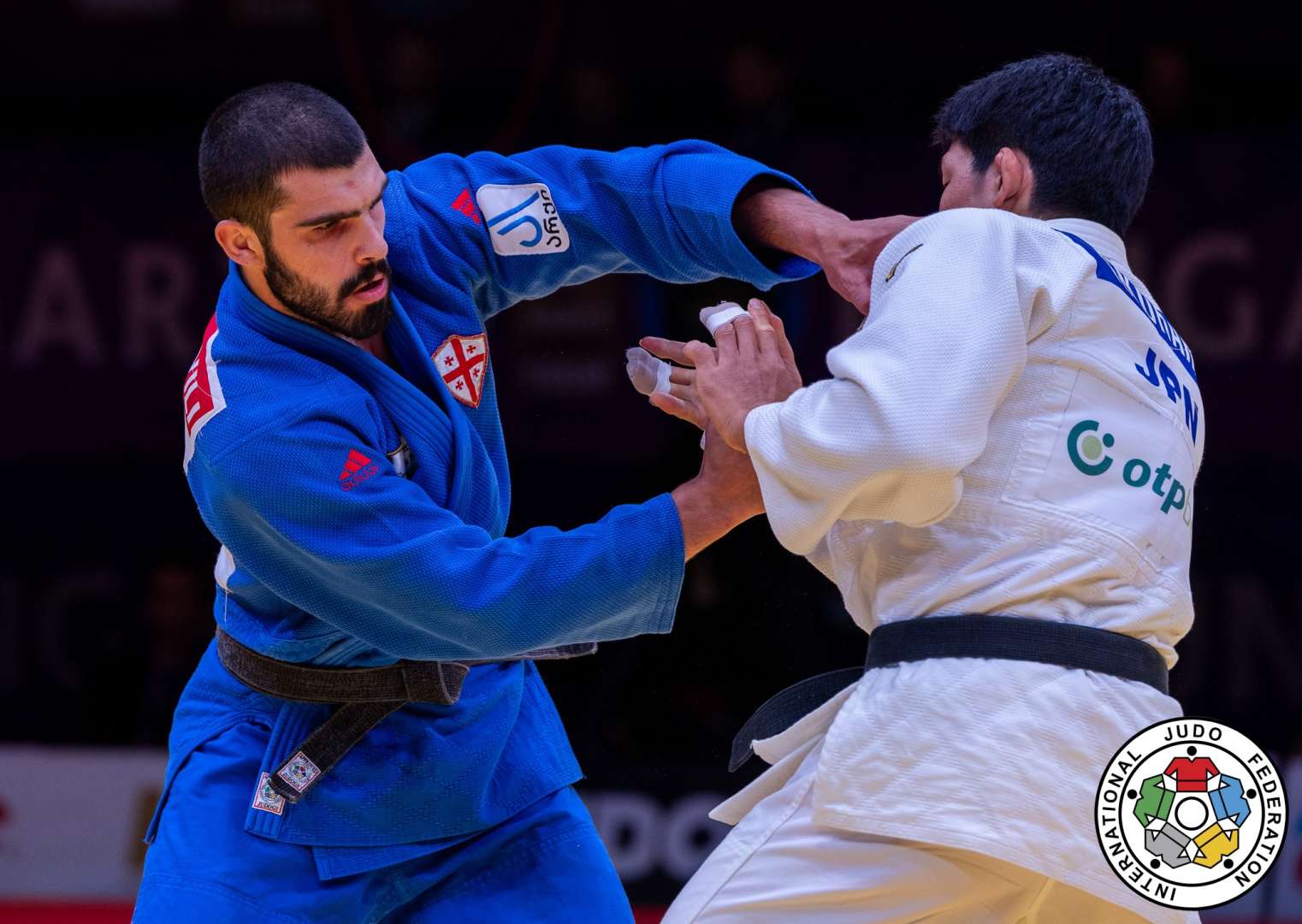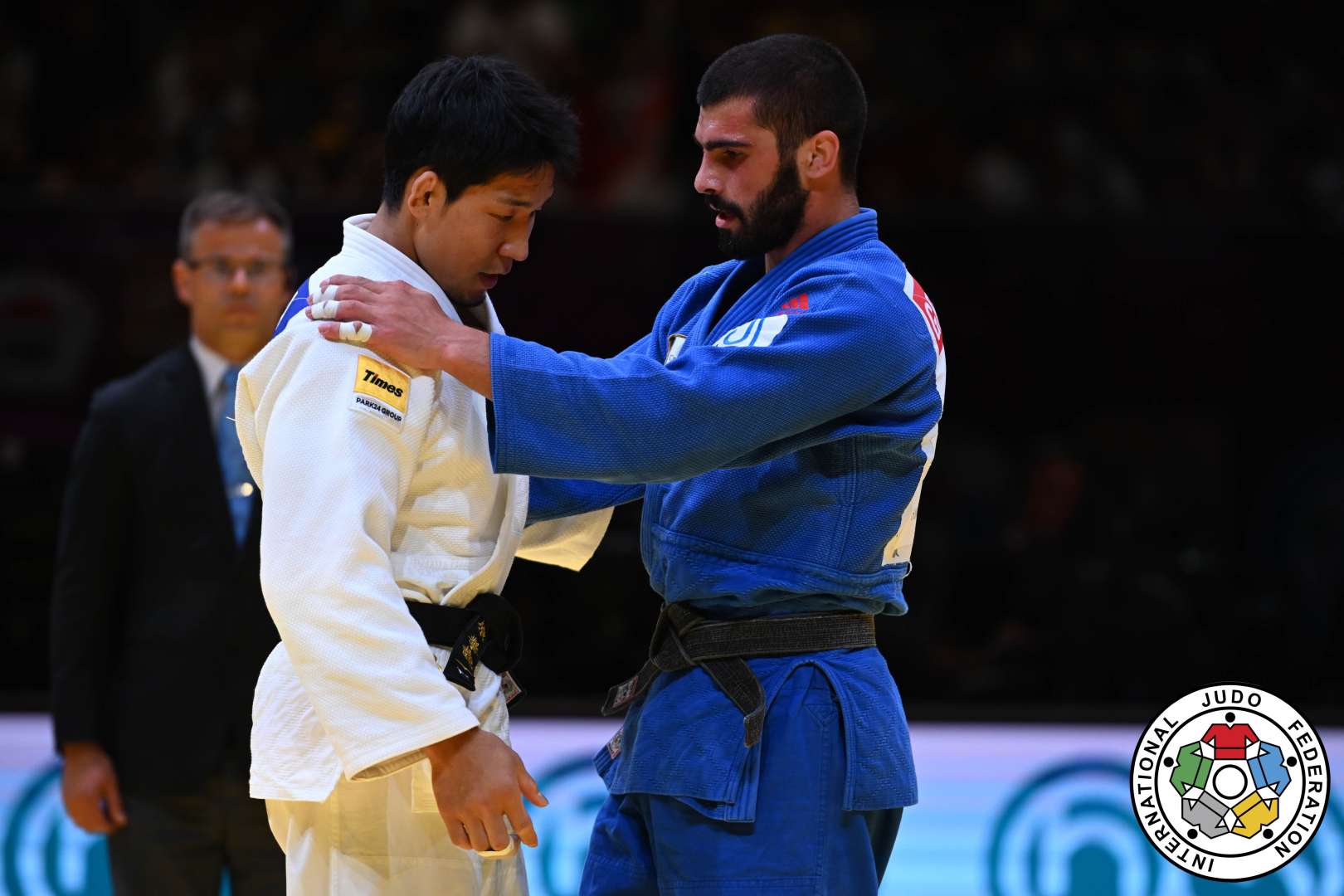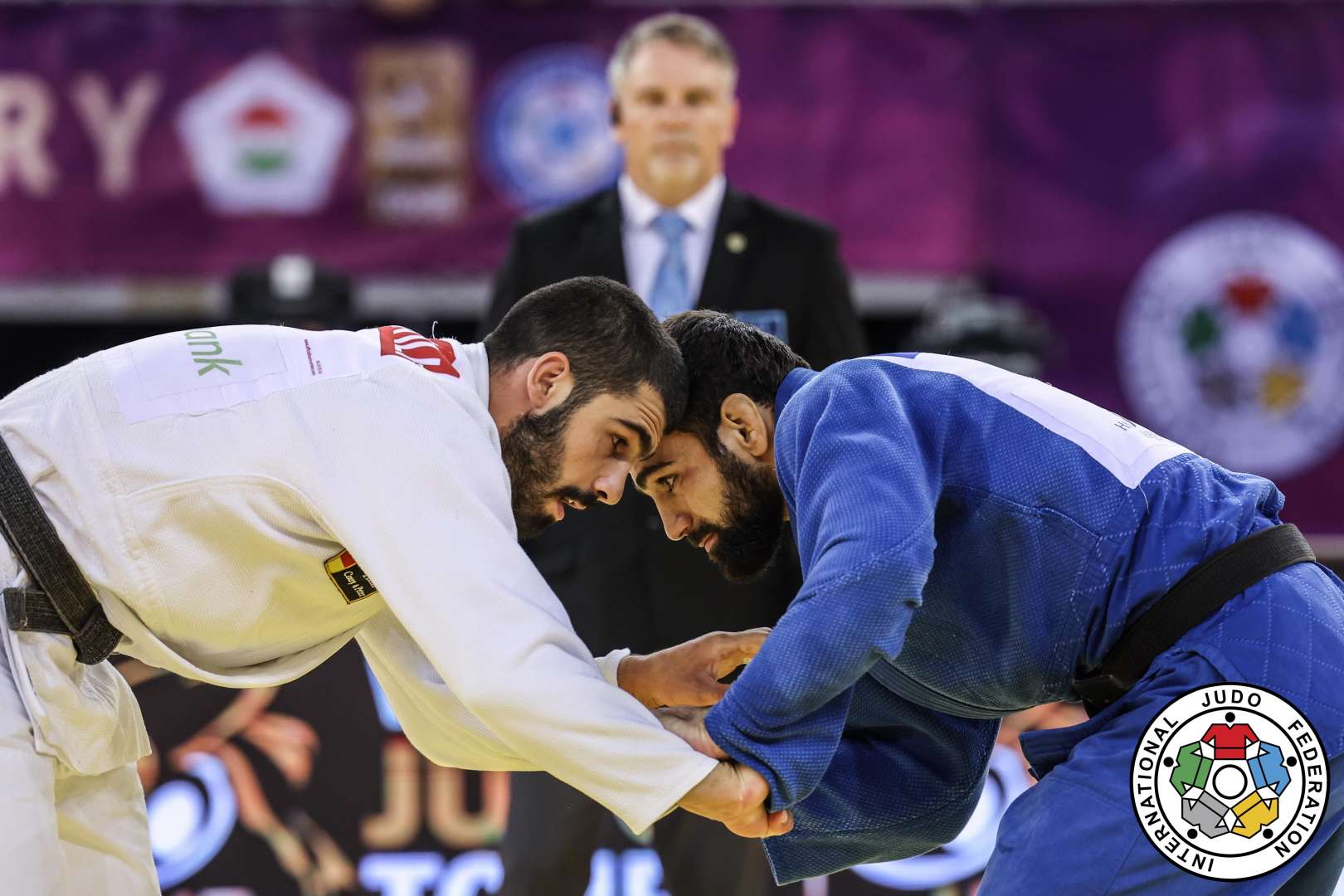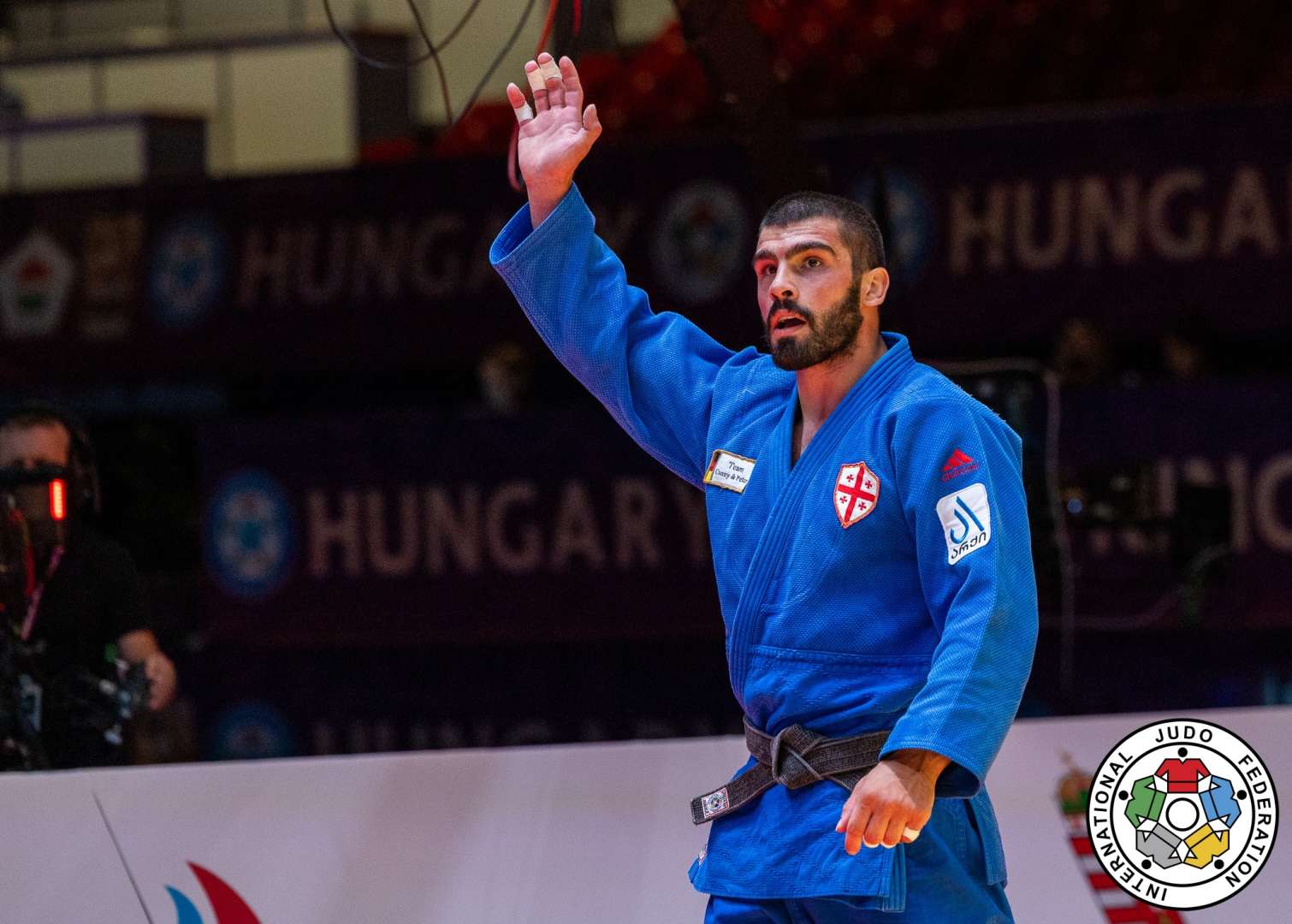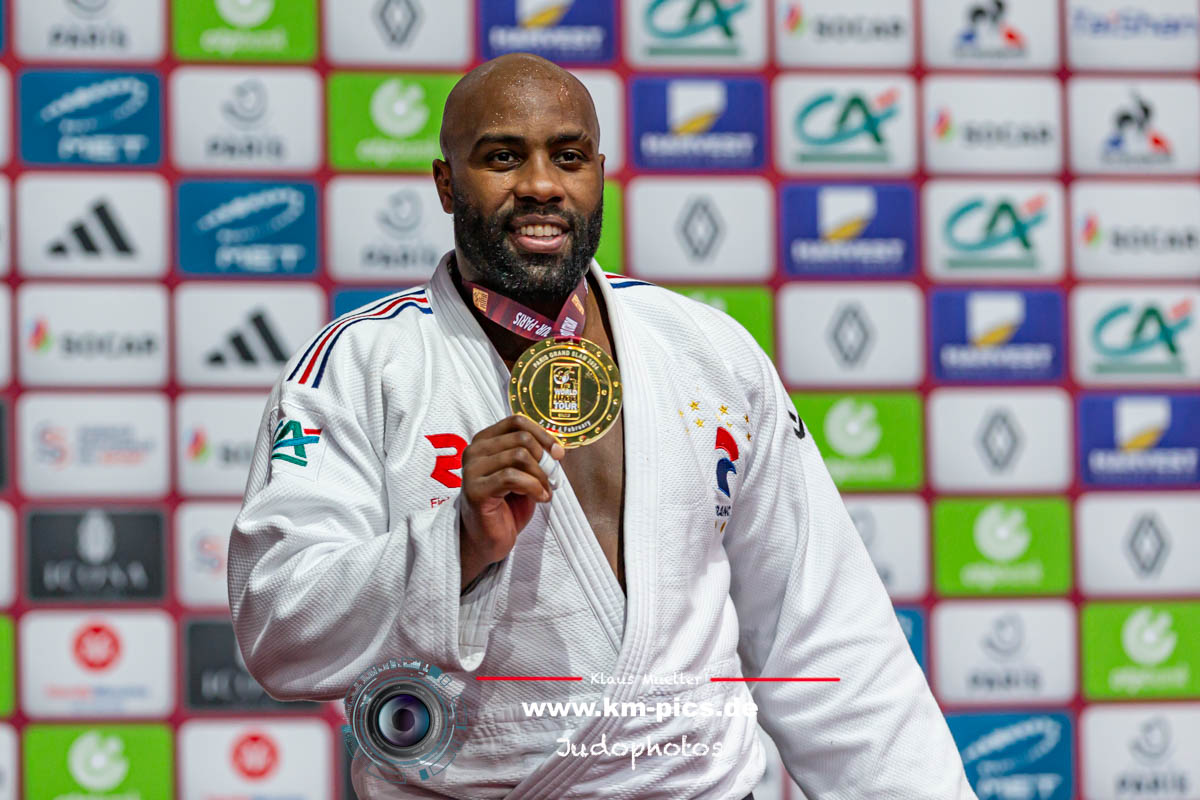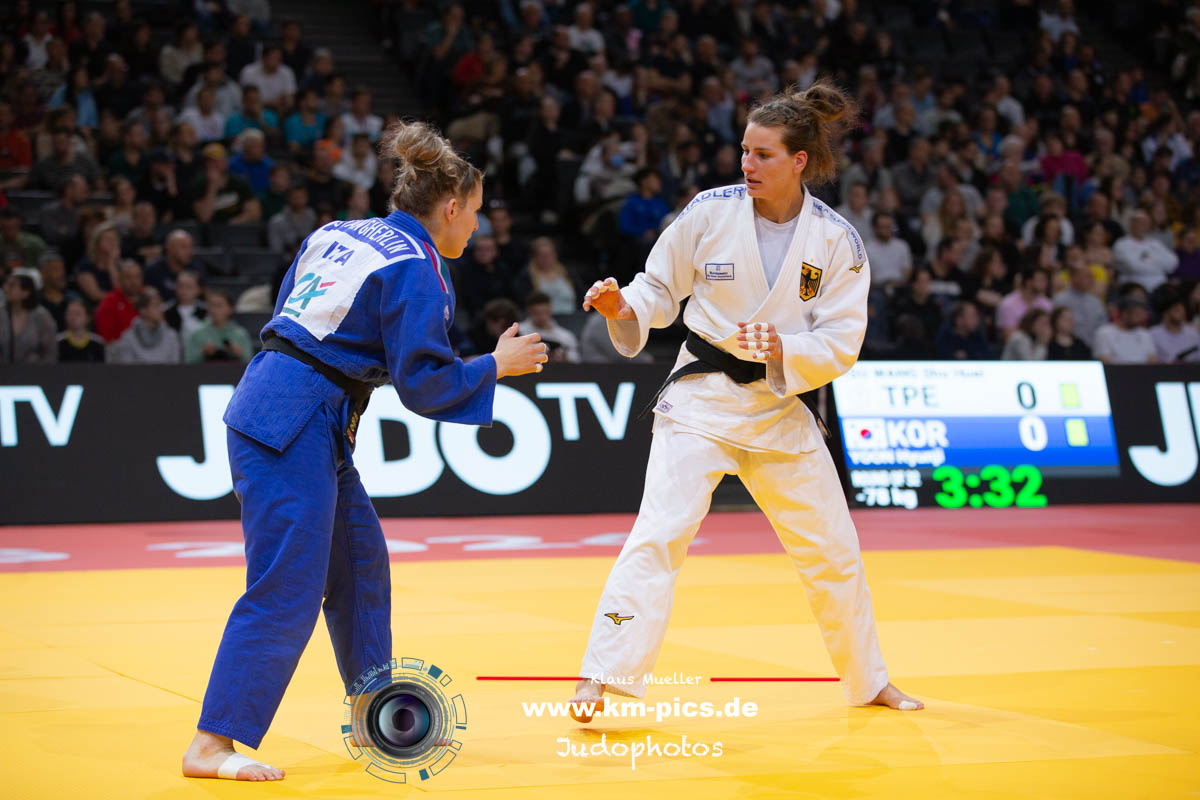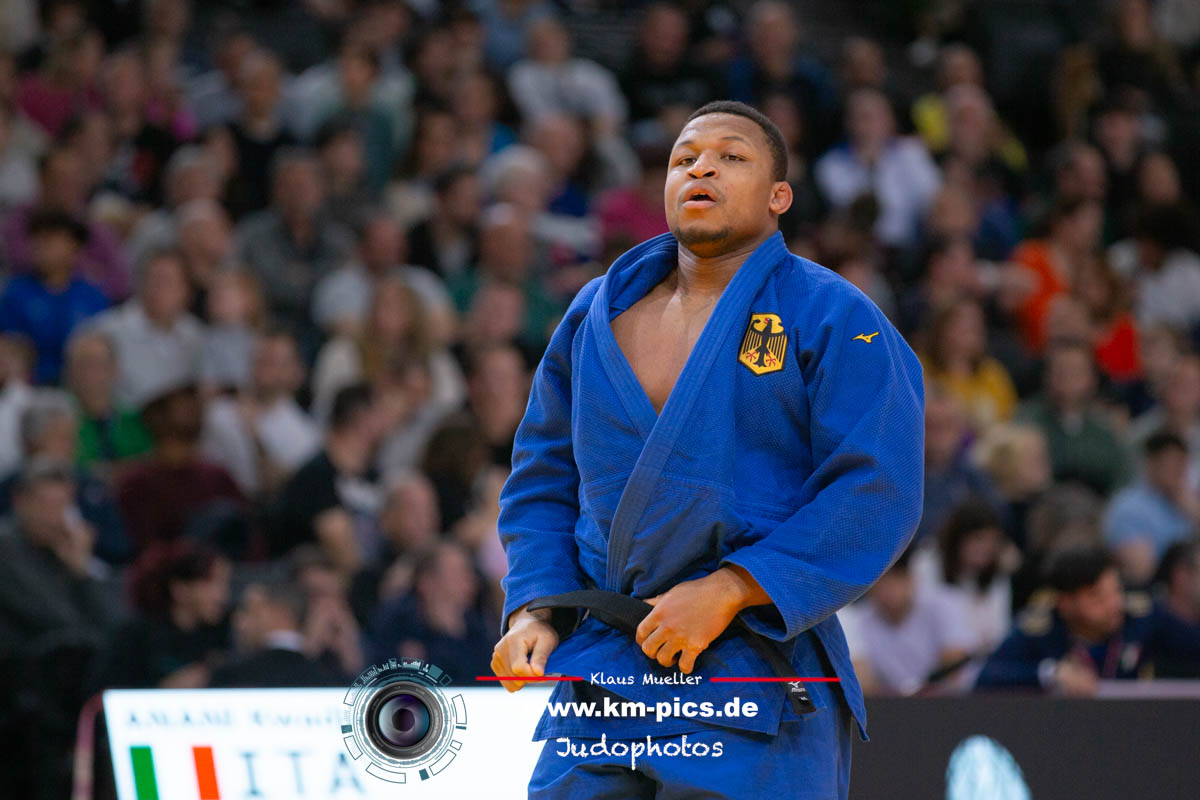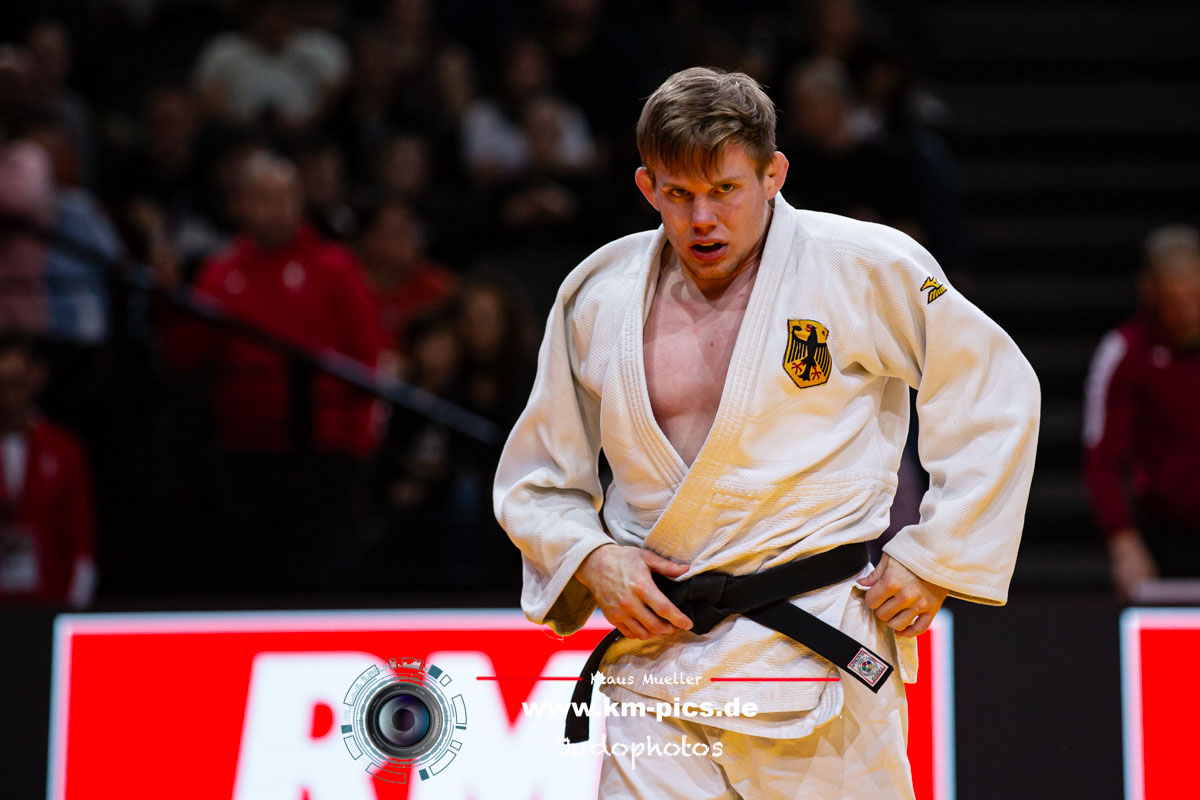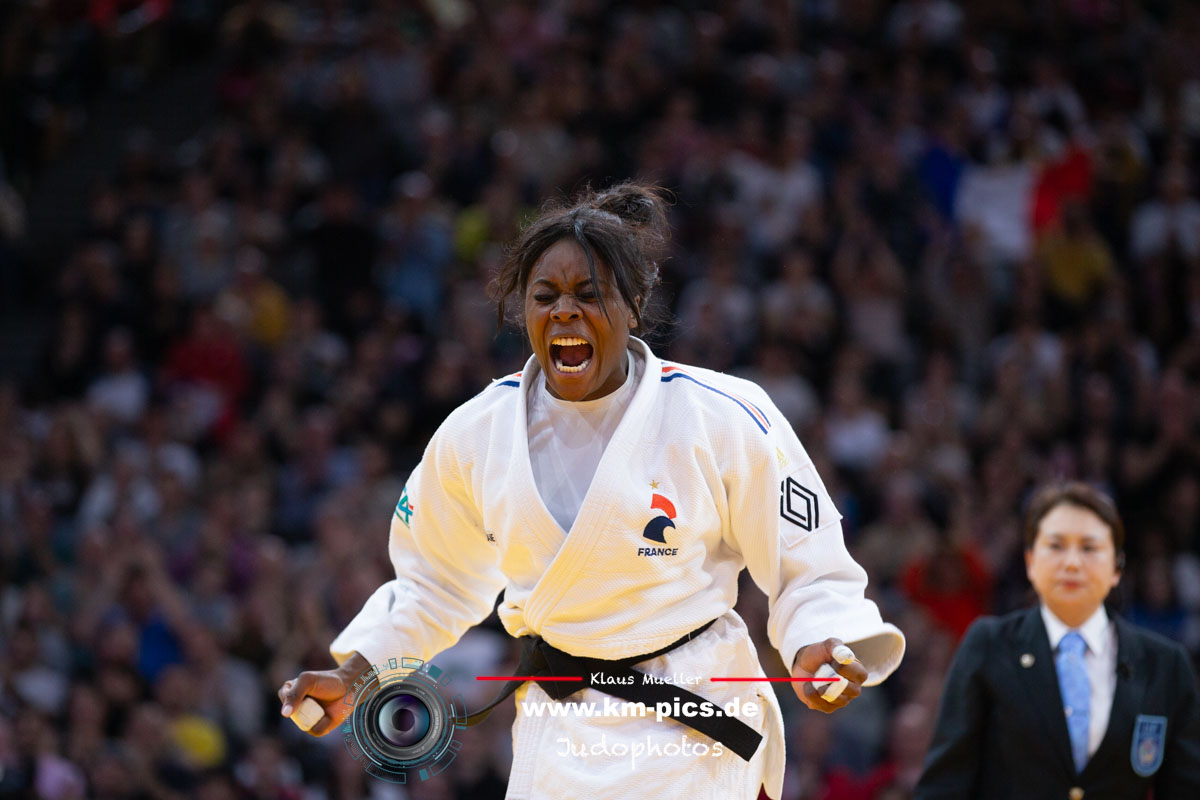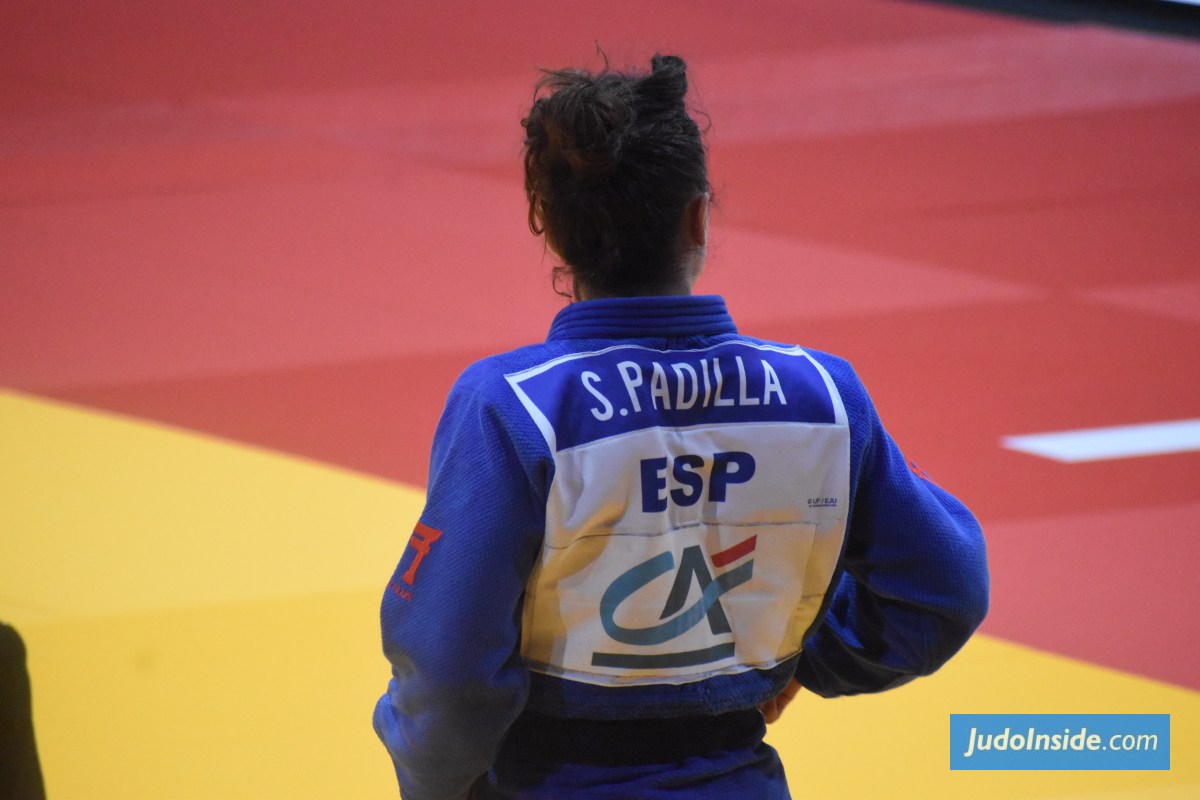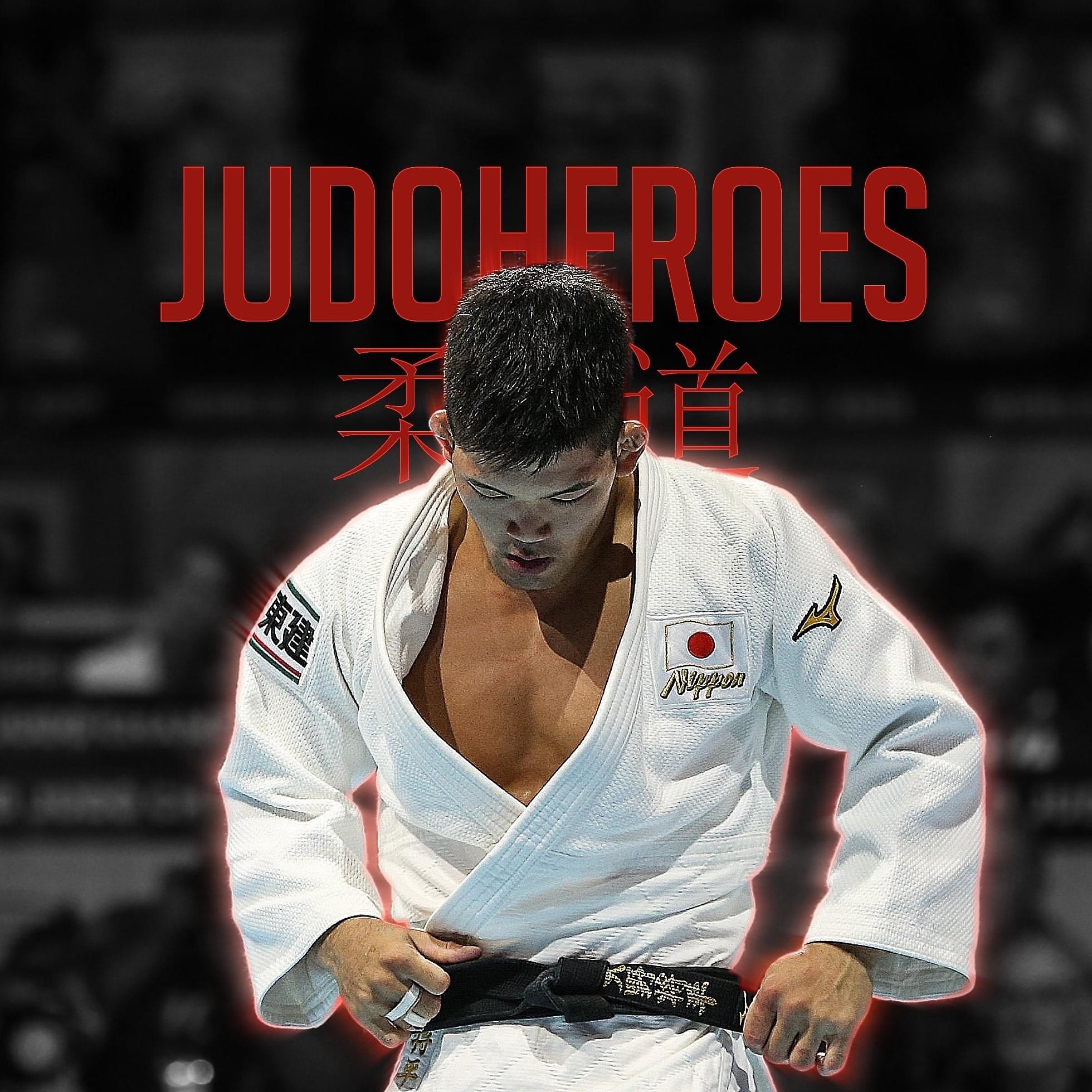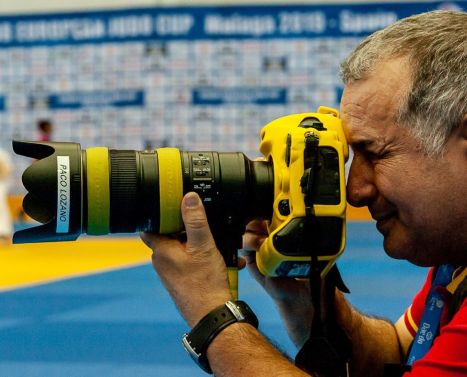1992 Olympic Champion Miriam Blasco: I wasn’t motivated to win more medals

 23 Feb 2021 13:05
23 Feb 2021 13:05
 Maria Jose Carchano of lasprovincias.es
Maria Jose Carchano of lasprovincias.es
 David Finch / Judophotos.com
David Finch / Judophotos.com
Spanish top judoka Miriam Blasco was a senator for twelve years, four years as a deputy, and she qualifies her experience as very positive, however she still has the stain of having voted against equal marriage, something that she would not have done now. Her partner is Nicole Fairbrother, with whom she faced in the final of the Barcelona Olympics.
Maria Jose Carchano of Las Provincias interviewed the Olympic Champion of 1992 who retired in advance of the 1996 Olympic Games just like Sally Conway.
What are you currently doing in life?
Enjoy life. I collaborate with an association called Acomar that helps people who live on the streets, where I am one more volunteer. I go one day a week and make sandwiches, or whatever it takes. In addition, I teach one day a week at the Miriam Blasco judo club. On the other hand, I am training in personal growth issues, I give lectures, master classes, read, travel, write, do sports, spend time with my family… I am very calm.
What do you write?
Poetry. I've always liked him and my father was a rhapsodist, he gave recitals and you would get goose bumps when you listen to him. Since we were little he instilled it in us and we loved hearing him.
Isn't judo your priority now?
No, I have done many things, but I think I have known how to get where I wanted to go in each stage and before I was tired of not having enough motivation, I have known how to change.
The champion's tears are not always of joy. When Miriam Blasco won in the judo final at the Barcelona Olympics in 1992, years later her opponent would become her partner, Nicola Fairbrother, her cry was of contained rage, of a mixture of bitterness and release because her coach, Sergio Cardell, had been killed in a motorcycle accident a month before going up the port of the Carrasqueta. "I just wanted to finish to go home," she has come to say. Miriam Blasco faced the Olympic dream with the aim of showing Sergio, wherever he was, that she had been worth the years she dedicated to him. "He was the one who convinced me that she could be a champion." Almost three decades have passed and Miriam Blasco knows that that medal changed her life forever.
What happened after you retired?
-I had a bad time, because of the death of Sergio, because of the death of my father only a year later, because I separated and also because of the post-medal depression; When you've been preparing for something for four years of your life, you say, 'Now what? What is going to motivate me so much to continue, when I am up the mountain? At that time she helped me a lot being a coach.
There are athletes who find it difficult to put their energy into another activity knowing that it is difficult to go back to being number 1 in something.
You have to turn the tortilla one way or another. I did it, I feel privileged because it is not easy to win a medal and because you also have to look forward. Athletes have to know how to lose and know how to win, because it is part of life. And stay with the good. I was champion of Europe, the world and Olympic, but I did not want to be it again. And I really admire Rafal Nadal, or Isabel Fernández (2000 Olympic judo Champion), people who have continued to triumph. It was not what I aspired to. I had succeeded, it did not motivate me to be the same again. I was a coach of Olympic medalists and I didn't want to be that again. I was in politics and I left when I achieved my goals, and now I am at a stage in my life where I want to travel, spend time with my family and help.
You were married. Was it difficult to manage later having a partner who was a woman?
Yes, because when you have feelings that you don't recognize it is complicated, until you understand what happens. "Barcelona was important for both of us, although nothing started there"
As a woman and an athlete, she has been a benchmark. Also in your personal circumstances?
I never wanted to be in that aspect, because I have always thought that my private life is my private life. I've never wanted to be tagged. I fell in love with a person and, in this case, it was a woman. Can you help someone by the fact that she knows? I don't know in what way, because each one has to manage what he feels and how he experiences it in the environment that he has.
 like
like
 share
share
 - HEIN, Marlen (GER)10.jpg)
| Result | City | Date |
|---|---|---|
| 1 | Zagreb | 26 Apr |
| 3 | Belgrade | 2023 |
| 2 | Montpellier | 2023 |
| 3 | Budapest | 2023 |
| 1 | Doha | 2023 |
| Result | City | Date |
|---|---|---|
| 1 | Tashkent | 2 Mar |
| 1 | Paris | 3 Feb |
| 1 | Budapest | 2023 |
| 2 | Tokyo | 2023 |
| 5 | Montpellier | 2023 |
